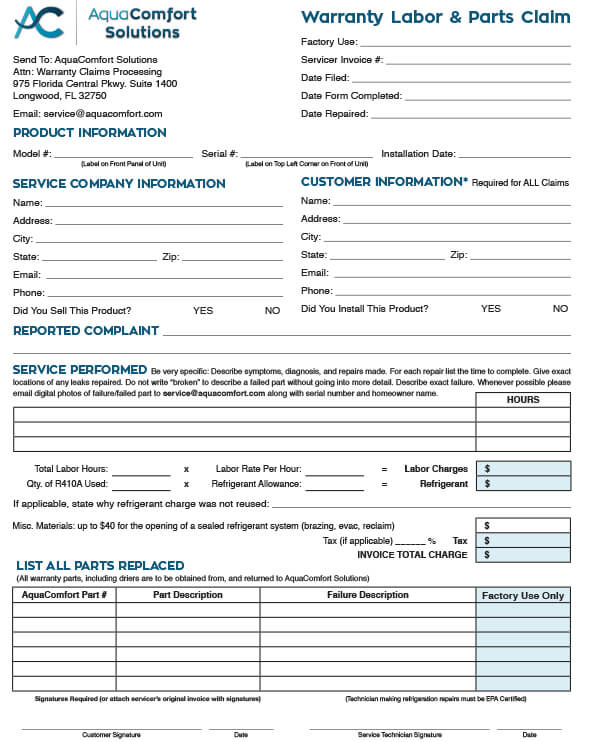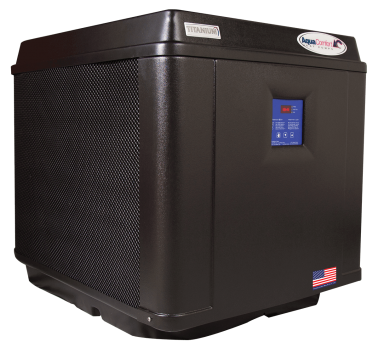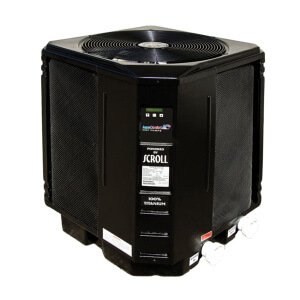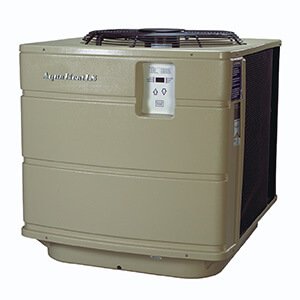
Swimming pools are fantastic. In fact, having a pool in your home can actually increase the value of your property. But there’s nothing worse than a cold pool – it’s a bit bone chilling and uninviting. With that in mind, you’ll probably be looking to install a pool heater.
Over 100,000 pool owners across America already benefit from warmer pools all year long, thanks to heat-pump pool heaters that have virtually no harmful emissions and less operating costs than other similar heating products…
Heat pump pool heaters
Unlike natural gas or propane heaters– which can be very inefficient and bad for the environment at that – heat pump pool heaters don’t actually generate heat.
In fact, they work in much the same way as an air conditioner, using ‘free heat’ from the air to heat up your swimming pool.
In brief, a fan pulls warm air over the evaporator coil causing the liquid refrigerant inside to heat up and turn into a gas; which in turn enters a compressor, increasing its temperature. The hot gas then leaves the compressor and enters the condenser heat exchanger where the heat is transferred to the pool water flowing on the other side.
In terms of costs, the only thing to consider is the operation of the compressor and fan motor (these are the parts that allow you to get this ‘free heat’).
What size pool heater do I need?
In terms of choosing a heat pump pool heater, you’ll want to consider a few things:
- Pool heater size
It’s essential to buy the right size heater for your pool, as the installation process simply won’t work otherwise. When sizing a heater, the surface area of the pool as well as the difference between the average external air temperature and the pool need to be taken into account. Wind exposure, humidity level and cooler night-time temperatures are also factors that can affect the efficiency of your pool heating.
- Efficiency
Efficiency is all about the cost of performance (COP). The higher the COP of the pump, the more energy efficient it is.
How to measure COP? Usually a COP measurement is taken by testing a heat pump pool heater with an external temperature of 80 degrees. The typical range of COP is between 3.0 and 7.0, which means it’s functioning at an efficiency of 500% – 1 unit of electricity in converted into 3-7 units of heat.
- Cost
Cost is an important factor to consider and thanks to their design, heat-pump pool heaters can actually be up to 80% cheaper to run than propane gas heaters! If you’d like to check the details about how much money you could save by installing a heat-pump heater, take a look at our Savings & Sizing Calculator.
Because of these various factors, it’s advised that your pump is sized and installed by a professional. Luckily at AquaComfort, our network of professional dealers will ensure that your choice of heat pump is a reliable and energy-efficient one. Get in touch today to learn more about buying the correct pool heater for you.










Follow Us